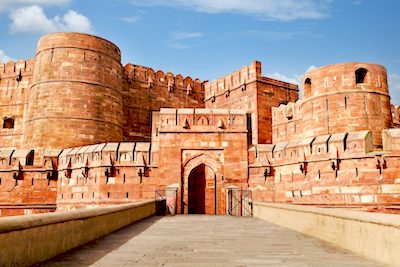
K S. Krishnan, 92 years, recalls the aftermath of Mahatma Gandhi’s assassination, and almost 70 years later, shares his personal experiences as a student of BHU.
1948: The passing of the Mahatma
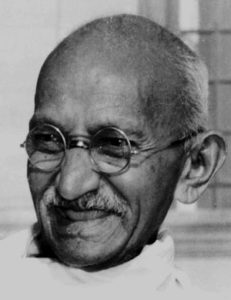 The whole Nation, the world at large, was mourning the assassination of the Father of our Nation, the Mahatma in 1948. Gandhiji, and other freedom fighters, led us to Freedom after a long and turbulent struggle. It is an irony of history that he was assassinated with a point-blank shot as he uttered “Hey Ram !”
The whole Nation, the world at large, was mourning the assassination of the Father of our Nation, the Mahatma in 1948. Gandhiji, and other freedom fighters, led us to Freedom after a long and turbulent struggle. It is an irony of history that he was assassinated with a point-blank shot as he uttered “Hey Ram !”
He was shot by Nathuram Vinayak Godse a few months after the unprecedented bloodshed that followed the historic partition of our Motherland, just as Freedom was won.
Godse was reportedly connected with the RSS (Rashtriya Swayam Sevak Sangh) which was later banned. I was an ardent Swayam Sevak (SS) in Morvi Hostel in BHU (Banaras Hindu University). There was an outburst of anguish and anger against Swayam Sevaks. In this wave, their arms were pinned, clothes and books burnt, mess crockery broken.
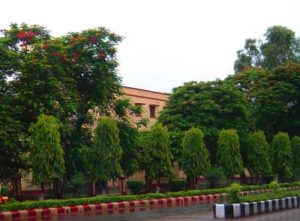 Dr. N.N.Godbole, our College Principal, was loved and revered. After a few days of ravage, Dr. Godbole sent me a discreet message that I better quit the hostel for a while till the outburst calmed down. I met him and obeyed him by leaving the hostel the same night, despite gnawing concern for my oncoming M.Tech final exams. Sharing the situation, my close associate, Suresh Nath Sood, joined me, while another associate, Surender Pal Kohli, moved elsewhere.
Dr. N.N.Godbole, our College Principal, was loved and revered. After a few days of ravage, Dr. Godbole sent me a discreet message that I better quit the hostel for a while till the outburst calmed down. I met him and obeyed him by leaving the hostel the same night, despite gnawing concern for my oncoming M.Tech final exams. Sharing the situation, my close associate, Suresh Nath Sood, joined me, while another associate, Surender Pal Kohli, moved elsewhere.
1948 – Aftermath of Gandhiji’s assasination: Day 1
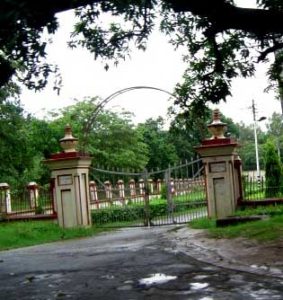 We got onto a cycle rickshaw before 9 pm, without baggage, with a few rupees in our pockets. We sped through BHU main gate inconspicuously , or so we thought. Sureshji bought cigarettes on the way and we smoked with enormous puffs like no SS did. We were trying to dodge anyone who might be watching.
We got onto a cycle rickshaw before 9 pm, without baggage, with a few rupees in our pockets. We sped through BHU main gate inconspicuously , or so we thought. Sureshji bought cigarettes on the way and we smoked with enormous puffs like no SS did. We were trying to dodge anyone who might be watching.
Soon after, while taking a discreet look behind, we noticed that one person, presumably a CID , was closely following us on his bike. We reached Benares Cantt station, got our tickets for Allahabad, walked to platform No 1, bumping into the same CID.
We looked fearfully at the Railway Police booth on the platform with two policemen with bayonets guarding the entrance. The train steamed in. We rushed into a bharti- dubba (packed wagon, with no reservation ), reaching Allahabad early next morning.
Day 2
My plan was to stay for a few days with my Jijaji’s brother, Rama Iyer, at his residence in the Agricultural Institute in Naini. On ringing the doorbell, it was one Prof. Malhotra who came out, instead of Rama Iyer. We were startled, staring at each other dumbfounded ! With a weak smile, we said we had come for a holiday. Crisply we were told that Ram Iyer had left the Institute a few weeks earlier and was at Sangli Dairy Farm in Maharashtra.
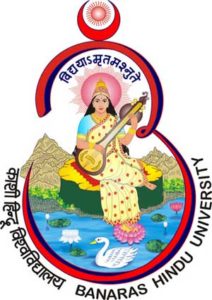 Swallowing our disappointment, we walked all over the sprawling Institute, only to spot the same CID, still shadowing us. We surveyed the situation and conspired to slip out from behind a cattle-shed. Next, we cut through a thick foliage beneath the Naini railway bridge over the Jamuna river, and walked down the riverbank and disappear into the country side beyond.
Swallowing our disappointment, we walked all over the sprawling Institute, only to spot the same CID, still shadowing us. We surveyed the situation and conspired to slip out from behind a cattle-shed. Next, we cut through a thick foliage beneath the Naini railway bridge over the Jamuna river, and walked down the riverbank and disappear into the country side beyond.
We did it in a somewhat defiant mood of ‘let’s see what happens next’ and MANY THINGS HAPPENED THEREAFTER.
We walked some six km through villages and across fields. Hungry, we plucked few tomatoes to eat. Still famished, we bought some jalebis and biscuits with tea from a village halwai (sweet- vendor), but only after counting the few rupees we had. That was when we spotted a country-boat ferrying villagers across. We got on board quickly. After some twenty minutes of crossing, we got off at the opposite left bank beyond the confluence of Ganga-Jamuna.
The Kumbh Mela was on, with the various akhadas of Sadhus. They were in varying degrees of clothing, with matted hair and beard, some looking benign and beatific, others quite fiery. It was a profusion of colours of yellow, orange, red.
The Kumbha in 1948
S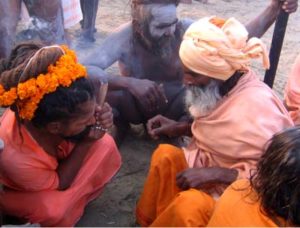 ome sadhus invited us to join their group, smoking. Though tempted, we resisted, reminding ourselves, we had a long way to go. Some of them offered lassi (sweetened buttermilk) with bhang, which refreshed and energised us.
ome sadhus invited us to join their group, smoking. Though tempted, we resisted, reminding ourselves, we had a long way to go. Some of them offered lassi (sweetened buttermilk) with bhang, which refreshed and energised us.
At noon, one sadhu-sangha generously insisted we have prasad of hot and delicious poori-halwa. Fed well, we walked on and on, up the river-bank, some nine km. Reaching Allahabad station, we were stunned to spot the CID right at the entrance. We were crestfallen. Evidently, he was waiting for us, patiently. We looked the other way pretending not to have seen him, walked briskly to the ticket counter, and bought tickets for a late night passenger train to Kanpur, reaching Kanpur early next morning.
Day 3
Getting out of Kanpur station, we had morning tea. We looked at each other, jointly agreeing how shabby we looked, with no bath and no change of clothes for two days. As we went along, we spotted a wayside barber sitting beneath a neem tree. Shaving was in progress, with twin clients. The gullible rustic-turned -captive customer, half-soaped, was awaiting his turn. The barber eyed us hopefully. We sat on his reserved- stone-seats, our mood tuned to the situation. Sureshji accepted the bidi (deshi cigarette) offered with courtesy. I started with, “Jai Ramji-ki ! Aap-ka haal- chaal kaise hai ?”(Hello, how are you?), and awaited my turn.
Suraiya
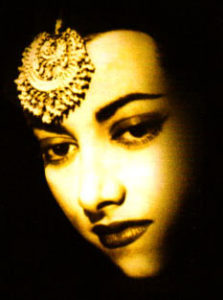 It was s heer luxury to be soaped, brushed and shaved, while watching the world pass by. The setting was cheerful added with a picture of Suraiya, nailed strategically on the tree we sat under, declaring: Lux :the beauty soap of the film-stars.
It was s heer luxury to be soaped, brushed and shaved, while watching the world pass by. The setting was cheerful added with a picture of Suraiya, nailed strategically on the tree we sat under, declaring: Lux :the beauty soap of the film-stars.
After a shave, feeling smug, I smiled at myself as the barber held a mirror up for me. The adjoining stone seat was already occupied by another customer. It was time to leave paying an anna (1/16 of a rupee). But WHITHER?
We wanted to freshen up. We walked into a nearby garden and chanced upon a leaky water-pipe with a puddle around. Half undressed, we performed a “Kaakka-Kuli” (a ‘crow’s bath’ as they say in native Kerala), wetting and scratching head, face, arms and feet. Refreshed, we ate hot parathas with hot sugary milky tea at a wayside dhaba, till we were satiated. I thought, how many of our country men can eat till satiation?
Planning a Strategy for Survival
Later, hesitantly and frugally, we bought a lungi and an Elgin Mills shirt each from Mall Road, again counting the few rupees left. These were preserved with care, neatly folded in a handbag. It came in handy later.
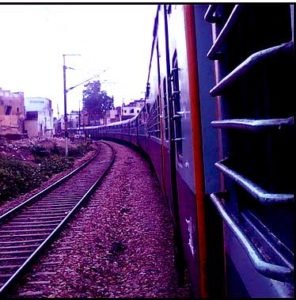 Well revived, we debated on ‘WHAT NEXT?’ That was when Sureshji got a brain wave. He said: “Let’s go to Agra and then on to Jodhpur”. “Are you mad?”, I asked. He replied calmly: “We shall go and be with my grandfather in Jodhpur for a few days, till things settle down in BHU”.
Well revived, we debated on ‘WHAT NEXT?’ That was when Sureshji got a brain wave. He said: “Let’s go to Agra and then on to Jodhpur”. “Are you mad?”, I asked. He replied calmly: “We shall go and be with my grandfather in Jodhpur for a few days, till things settle down in BHU”.
And so it transpired that we found ourselves on the evening train bound for Agra, with our CID companion in the adjoining compartment. As we got off at Agra Fort station, he looked at us with a half smile, and appeared distinctly relaxed, having chased us without any suspicious incident. Assured of our good conduct, he stopped trailing us.
We often think our policemen are corrupt and hostile, but many are duty-conscious, humane and actually helpful. Why don’t newspapers and TV focus on these? Why does only bad news make NEWS?
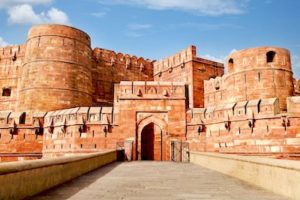 We reconciled ourselves to spending the night on the platform, alongside the great wall of Agra Fort that emperor Shah Jahan had built. I felt a part of history, as I shivered in the cold February night dreaming of the legendary Taj Mahal nearby. Luckily, I had picked up a blanket while leaving BHU.
We reconciled ourselves to spending the night on the platform, alongside the great wall of Agra Fort that emperor Shah Jahan had built. I felt a part of history, as I shivered in the cold February night dreaming of the legendary Taj Mahal nearby. Luckily, I had picked up a blanket while leaving BHU.
Day 4
We took a rickshaw to Raja-ki-Mandi station, which was crowded with displaced persons. There was utter confusion here. We caught a train with barely standing room, to Bandikvi, where the platform was again full of displaced persons. Finally, we took another train, standing till Phulera junction, which someone announced. Somehow disembarking, we caught the train for our destination and stretched out as the train sped through the vast deserts of Rajasthan.
Day 5
Waking lazily, we steamed into Jodhpur. With a surge of energy and hope, we got off the train. Sureshji said: “Let us go to Grandfather”. I said, “wait”Justice Sir Jai Lal, after retirement from Lahore High Court, was the Constitutional Adviser to HRH the Maharaja of Jodhur. We had our bath at the station and changed into our precious fresh clean white lungis and shirts. Combing our hair, looking into a mirror to make sure we were presentable, I urged Sureshji to phone his Grandfather to avoid the shock of an unannounced entry. Clearing his throat he phoned. There was an awkward silence at the other end, but it was followed by ‘Welcome to you both’.
We hired an ancient horse-drawn tonga. ‘Kadakada-kadakada” went the rhythmic sound, as we bumped along and reached the State Guest House, near Sardarpura, which has since been converted into a Circuit House.
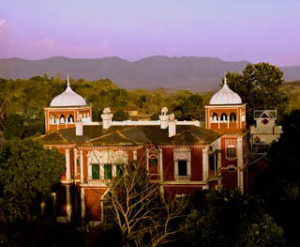 Justice Sir Jai Lal, is still remembered in Kangra, Himachal Pradesh where he left a legacy which is now a heritage resort, currently maintained by his great-grandson. The 300 year old ancestral home of Justice Sir Jai Lal, a friend of Lord Hardinge and an intimate of the Maharajas of Patiala and Kapurthala has been restored to maintain its original structure.
Justice Sir Jai Lal, is still remembered in Kangra, Himachal Pradesh where he left a legacy which is now a heritage resort, currently maintained by his great-grandson. The 300 year old ancestral home of Justice Sir Jai Lal, a friend of Lord Hardinge and an intimate of the Maharajas of Patiala and Kapurthala has been restored to maintain its original structure.
Judge Saab had already organized a room for us in the first floor. Our arrival caused a silent commotion among the liveried guards and bearers. We were greeted with extreme courtesy, and ushered into the allotted room. But we had violated the dress code.
OUR FORTUNE TOOK A U-TURN
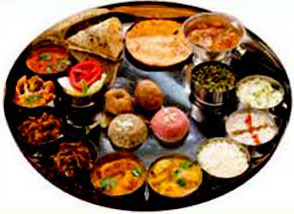 We were served Jodhpuri thalis in the room. We slept the whole afternoon.Revived, we phoned two of our undergraduate friends, Kapil Dev Khanna and Kapali Shastri, then on training in IAF, Jodhpur.
We were served Jodhpuri thalis in the room. We slept the whole afternoon.Revived, we phoned two of our undergraduate friends, Kapil Dev Khanna and Kapali Shastri, then on training in IAF, Jodhpur.
Within an hour they cycled in with their two spare pants and shirts, which we changed into. Looking distinctly misfit, the two of us doubled up on our friends’ bikes. We hired two bikes on the way and proceeded to the nearest cloth-shop and bought cloth to tailor trousers and shirts. They were tailored overnight and delivered home next morning.
Day 6
Wearing our new clothes Sureshji looked like a prince, and I, his trusted aide. Self- assured, we joined Judge-Saab, Sureshji’s mother and sister at their private dining room situated on the exclusive second floor. Judge Saab was all grace and kindness . Choice breakfast was served. I ate with relish. Sureshji stayed on with the family, while I retreated discreetly downstairs. Fond of exploring, I walked around a while, returning to lunch with the family.
With his short stature and quiet dignity, besides his noble heart and just disposition, Judge-Saab had won the hearts of many, including Lord Hardinge, while at Simla.
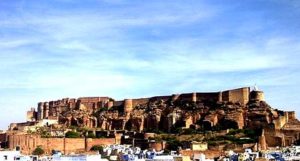 That evening was open to guests at the Officers Mess in IAF camp. Kapil and Kapali insisted we join them. We had a gala time, somewhat uproarious as we reminesced about our college days. Everything fell in place, unplanned, unearned.
That evening was open to guests at the Officers Mess in IAF camp. Kapil and Kapali insisted we join them. We had a gala time, somewhat uproarious as we reminesced about our college days. Everything fell in place, unplanned, unearned.
The following several days were spent in regal comfort, with delicious food, attended by liveried staff, visiting the Mehrangarh Fort, the Chattris, the yet incomplete Umaid Bhavan Palace. The gnawing worry of ensuing final exams persited. We decided to get back to BHU at the earliest.
The final farewell was with moist eyes before we chugged out of the station, and sped through the desert. We reached Banaras Cantt late in the evening. Thereafter, reaching the vicinity of Morvi hostel, we paid off the riksha-wala. It was already dark. We walked across the field, and entered from the back gate. Reaching my room I slumped onto my khatia, and fell fast asleep.
BHU
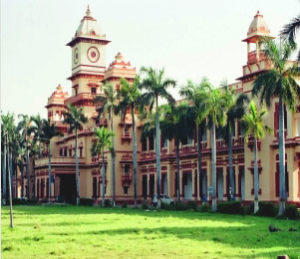 Next morning, I was up before anyone else. I had a quiet walk along the lobbies, taking stock of the situation and myself. By 7 AM, there were whispers spreading around: “Lagta hai woh Kishan waapas aagaya Kab ? Kuch patha-nahi”. I prayed fervently and soulfully and that evening addressed the assembly of residents calmly : “Friends, the past is past. Let us try to forget. RSS is banned. We have no agenda to continue. Let us co-exist in peace and focus on the upcoming exams. After all, we have been friends for long”.
Next morning, I was up before anyone else. I had a quiet walk along the lobbies, taking stock of the situation and myself. By 7 AM, there were whispers spreading around: “Lagta hai woh Kishan waapas aagaya Kab ? Kuch patha-nahi”. I prayed fervently and soulfully and that evening addressed the assembly of residents calmly : “Friends, the past is past. Let us try to forget. RSS is banned. We have no agenda to continue. Let us co-exist in peace and focus on the upcoming exams. After all, we have been friends for long”.
They listened. And the transformation was obvious. I saw the gradual lowering of sticks carried by many. The welling up of love and compassion in pure hearts was perceptible. As the meeting ended, there was a surge of friends around me, some hugging, some shaking hands, all expressing warm sentiments.
We planned a rigorous study schedule and followed it rigidly. As a consequence. we cleared the nine papers of M.Sc. Tech finals with good marks. Later, guided by Dr. Godbole, we lingered on in the campus for three months, engaged in self-study and lab work. After that we spent three months training in Lever Brothers’ factory in Sewri, Mumbai.
Thereafter, began, an extended odyssey called life.
With this, I pay my homage to:
• Mahatma Mohandas Karamchand Gandhi, Father of our Nation, who , with other martyrs, led us to freedom.
• Dr. S. Radhakrishnan, then Vice Chancellor of BHU, later President of India.
• Mahamana Pt. Madan Mohan Malavyaji: Lawyer, Visionary, Patriot, National Leader and Founder of BHU.
• Revered Dr. N.N. Godbole, Principal, College of Tech, BHU – my guru.
• Revered Justice Sir Jai Lal, Retd. Justice of Lahore High Court, and Constitutional Advisor to HH the Maharaja of Jodhpur.
An additional word
A word about my friends who were an integral part of this story:
Sureshji became a Manager in Hindusthan Lever, and later moved to Solan and Delhi. His wife Pratibha Nath, is a noted author and columnist.
Kapali Shastri, after IAF, he was Director in Bush Boake Allen.
I regret the early passing away of Sunder Pal Kohli, in the fifties in an accident while defusing outdated ammunition of IAF in Pulagaon.
I regret the early passing away of Kapil Dev Khanna, who died in a Vampire aircrash in Ambala in early fifties.

Leave a Reply